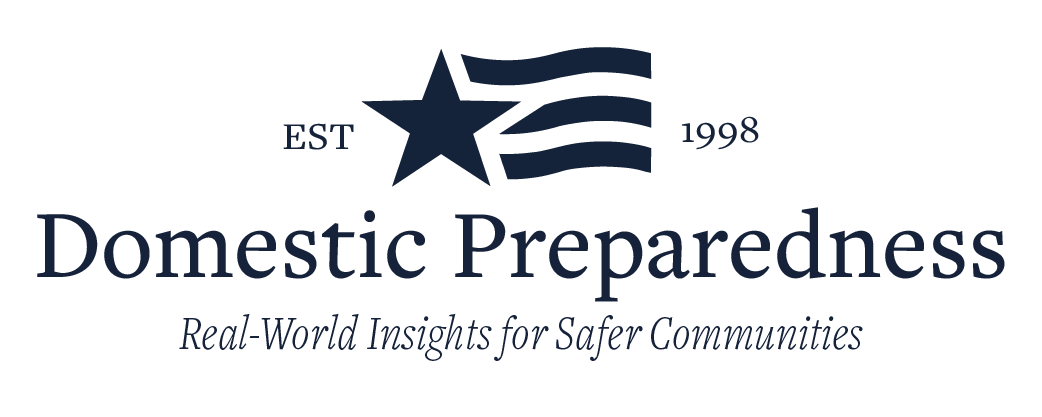The experience of one local agency in using funds provided by a federal education-and-information grant to develop a community-oriented program may serve as a helpful template for other agencies to follow both to qualify for the same type of funding and to serve as a model for team building. The following is a step-by-step account of what happened.
It began when the City of Alexandria, Virginia, qualified for a DOJ (Department of Justice) Community Policing Program grant in 2003 that specified a homeland-security focus. Police Captain D. Peter Crawford, who retired in 2004, was commander of the city’s Special Operations Division at the time. Through a competitive assessment process, he developed a small but expert team of highly qualified professionals that was responsible for a broad range of homeland-security tasks as well as community outreach and education programs. This might seem to some to be an unusual mix; however, as the new team members of Community Support Group C soon learned, it worked very well.
The members of Community Support Group C work under the parameters of the grant, which was funded in part by the DOJ’s Community-Oriented Policing Services. The eight officers and one sergeant who make up the team are an integral part of the City of Alexandria’s Community Support Section and focus their efforts on homeland-security issues at the community level. The previously established Community Support Section already had formed two teams, A and B, that were and are assigned to specific neighborhoods for community-oriented policing functions.
Duties, Responsibilities, and Special Qualifications
Community Support Group C was tasked with several responsibilities specifically related to homeland security and community policing. Each of the tasks assigned to the group was supported and/or accomplished between 2004 and October 2006. The team continues to prosper today – a senior team member, Police Officer-4 Jeffrey Ash, stated on 21 August 2007 that the team remains fully staffed and, despite some turnover in personnel, has continued its training. Several of the new members recently completed live-agent training as well as suicide/homicide bomber recognition and interdiction training.
The team relies heavily not only on local training, it should be noted, but also on the DOJ’s consortium training – which is provided by the Center for Domestic Preparedness, New Mexico Tech, and the Nevada Test Site. The tasks assigned to the team include the following:
- Providing security, working in conjunction with the city’s Special Operations Team, for all high-profile federal trials assigned to the Eastern District of Virginia, Federal Courthouse;
- Augmenting the efforts of the Alexandria Police Department’s Office of Intelligence and Internal Security;
- Conducting threat assessments;
- Providing security support for visiting and local officials and other VIPs;
- Providing rapid-response capabilities for emergencies, major incidents, and/or designated special events;
- Conducting training and education programs related to terrorism responsiveness, preparedness, and community-protection programs;
- Upgrading CBRNE (chemical, biological, radiological, nuclear, explosives) equipment needs, including the annual fit testing of air-purifying respirators (APRs), which are issued to all sworn officers, and maintaining an inventory of all Personal Protective Equipment (PPE) provided to first responders;
- Handling the backlog of outstanding warrants on both the local and federal levels. (All team members were sworn in as Special Deputy U.S. Marshals and serve on the National Capitol Region’s Fugitive Task Force);
- Developing responses to active crime trends that directly relate to homeland security; and
- Handling special surveillance, intelligence-gathering, and other duties associated with local, state, and federal homeland-security needs and programs.
“Specific and Dynamic Skill Sets” Required
Needless to say, there was not a lot of down time for members of Group C. The extensive list of missions assigned translated into a requirement for highly capable officers with very specific and dynamic skill sets. Those specially selected officers, who were “vetted” through a highly competitive process, had to already possess a number of the special skills required and/or be able to acquire those skills within one year of assignment. Some of the officers participated in over five hundred hours of training, in fact, during their first year on the team.
Following are some of the courses provided by and/or qualifications achieved through attendance at the Community-Oriented Policing School: dignitary protection training; HazMat operations (all of the trainees eventually achieved technician-level status in this area); bicycle operations; child safety-seat installation/inspection; advanced defensive tactics; patrol rifle qualification; pistol expert qualification; basic and advanced SWAT school; special events training; basic investigative school; and general instructor-development training.
Community Support Group C, which works in close cooperation with the city’s fire department, relied considerably during its formative years on the expertise and guidance provided under Battalion Chief John North, Fire Special Operations commander, and Captain Bryant Atkins, one of the city’s HazMat team leaders. The team soon became a deployable and exceptionally reliable unit of the Northern Virginia HazMat Team – which is made up of personnel from the Arlington County, State of Virginia, and City of Alexandria teams. Group C also attends and participates in fire HazMat drills, and the fire HazMat teams from the three previously mentioned jurisdictions attend and participate in the Alexandria Police Department’s SWAT training.
Here it should be noted that, although there were a few early concerns about why law-enforcement agencies were becoming involved in HazMat operations, a mutual understanding of each team’s roles and responsibilities quickly developed, resulting in greater mutual respect and significantly improved interagency cooperation.
Also worth noting is the fact that members of the Community Support Group, although fully trained to the technician level and fully capable of assisting in fire operations, do not do so as a general rule. The team does, however, provide force protection for the HazMat responders during active incidents.
The distinct roles played by police department and fire department personnel were practiced by Group C in several simulations and in full-scale exercises, significantly reinforcing the principle that, in today’s dynamic threat environment, fire-service personnel have important life-safety and detection-monitoring tasks to perform that may require fully integrated police-service protection. To meet this challenge, the team members had to learn the firefighters’ language and protocols for safety, decontamination, research, and other tasks in order to operate both safely and effectively with fire-service personnel in a common environment. Achieving that goal made the team an excellent working model that received high praise from both firefighters and police officers.
SWAT Packs, PPE Gear, and One Last Question
The Alexandria Police Department was brought to a level-B-capable CBRNE status for all sworn officers – which is quite an accomplishment for a medium-sized department of about 340 sworn officers. All officers are issued – and are required to carry with them – a variety of special clothing and equipment, including military Tyvek® F chemical splash-protection gear, chemical boots, gloves, and Scott AV-2000 APRs; members of the Special Operations team and Community Support Group C also are issued and carry LANX under and outer garments as well as Scott SWAT Packs (making them level-B ready). The purchase, issuance, and fit testing of this equipment and PPE gear are provided by the community support team, as is the training carried out while wearing the clothing and using the gear.
The question remains, though, how all of the tactical requirements and training listed above fits into the community policing scene. A partial answer is that all team members must receive general instructor certification from the Virginia Department of Criminal Justice Services. Each member also must be qualified to deliver a “citizens’ lesson plan” for preparedness. And, in fact, at least thirty or more community groups and civic organizations, and members of several other city departments – such as Transportation and Environmental Services, Dash Bus, and Parks and Recreation – have served as hands-on audiences for the lesson plan.
The same type of community-based preparedness-education program also was delivered to businesses during a seminar hosted by the City Chamber of Commerce. In addition, classes on the same subjects have been carried out each semester at local public high schools, and refresher training is provided annually, prior to the beginning of each school year, for school board administrators and teachers. Finally, similar instruction has been provided for all new hires, including civilians, in the city’s Police, Fire/EMS, and Sheriff public-safety departments. The team also supported the other community-support teams with monthly planned operations within specific communities, and was represented at such community events as child-safety-seat open houses and bicycle saturation patrols.
To summarize: Community Support Group C serves as an excellent example of leading-edge proactive counter-terrorism and crime prevention and mitigation operations through the unification of governmental disciplines and local neighborhoods and communities within the same political jurisdiction – and/or neighboring jurisdictions. With new grant funding provided by the U.S. Department of Homeland Security (DHS), the Alexandria model of a Community Support Group can easily be duplicated in other agencies.

Joseph Watson
Sergeant Joseph Watson is a former Marine Military Police Officer and 25 year veteran of the City of Alexandria Police Department. He is currently team leader for the Department’s Special Operations Division, Community Support Section Homeland Security Unit. Watson is the founder and President of Special Operations Solutions, LLC. Consulting, Planning, Training, Exercises, and Operations. He is also a trainer in Basic and Advanced Special Operations, Firearms, Defensive Tactics, ODP Awareness, and Hazardous Materials. He was the recipient of the 2002 Washington Metropolitan Council of Governments, Chiefs Training Committee, Instructor of the Year award.
-
Joseph Watsonhttps://domesticpreparedness.com/author/joseph-watson
-
Joseph Watsonhttps://domesticpreparedness.com/author/joseph-watson
-
Joseph Watsonhttps://domesticpreparedness.com/author/joseph-watson






